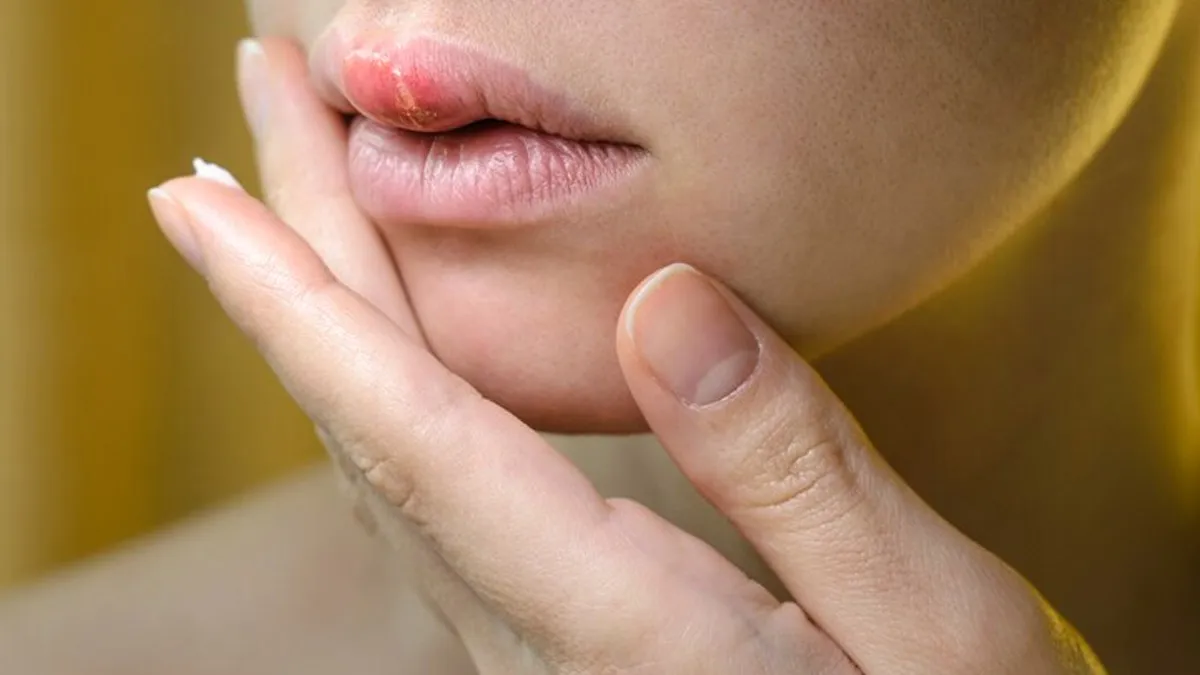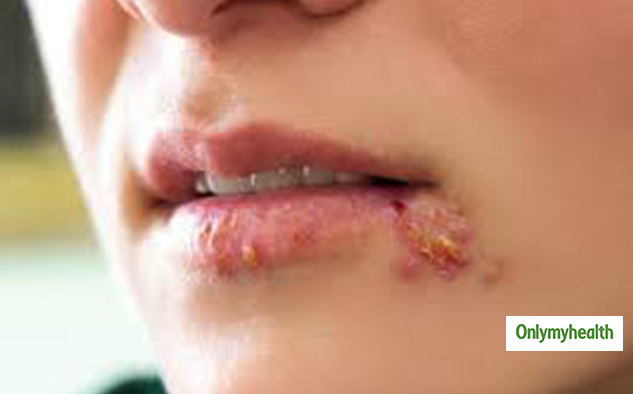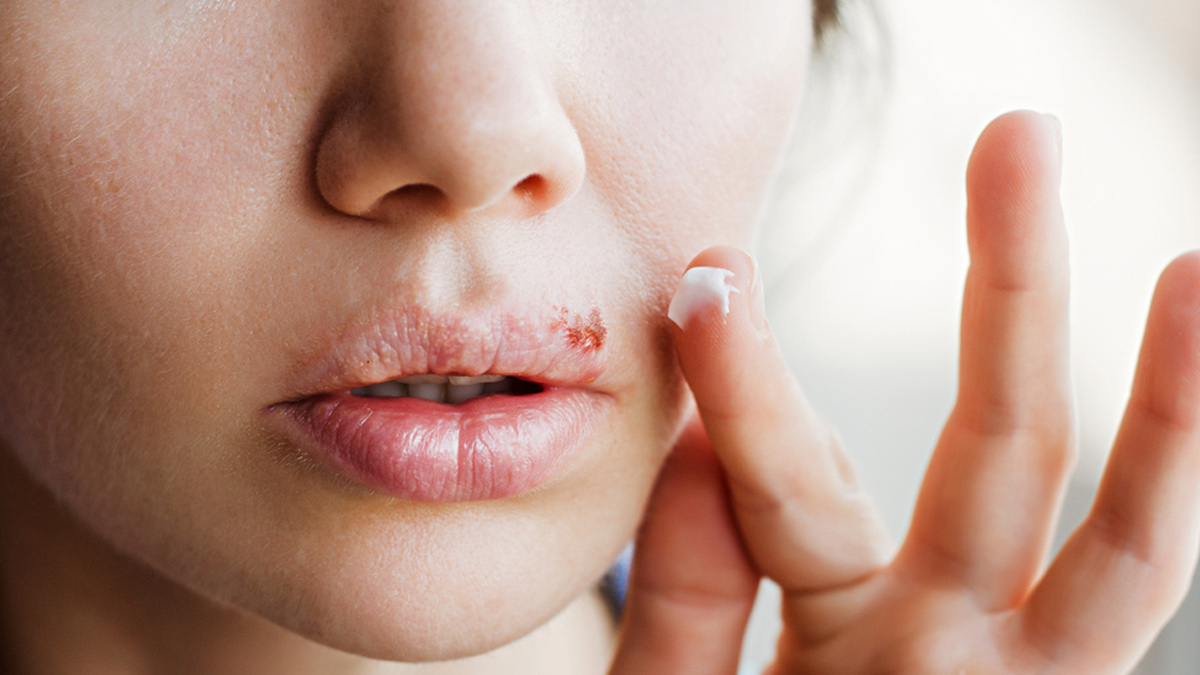
Cold sores are tiny, painful blisters that appear around the lips and are more common than most people think. It is often associated with a highly contagious virus called Herpes Simplex. This is why, the question on top of many minds is: Can you kiss with cold sores? We spoke to our expert, Dr Shitij Goel, HOD Dermatology, Sharda Care- Health City, to uncover the truth about cold sores, the Herpes Simplex Virus (HSV), and how to prevent transmission. But let’s understand what cold sores and HSV are.
Table of Content:-
Understanding Cold Sores and Herpes Simplex Virus
Cold sores, also known as fever blisters, are caused by the HSV. There are two main types:
1. HSV-1
This is the primary cause of cold sores and is commonly transmitted through oral contact, such as kissing. It can also be spread through shared items like towels, razors, or eating utensils.
2. HSV-2
While usually associated with genital herpes, HSV-2 can also cause oral infections, although it is less common.
HSV is incredibly common—around 67% of the global population under the age of 50 is infected with HSV-1. Despite the high rates of infection, many people who carry the virus never develop symptoms. However, for those who do, outbreaks can be both uncomfortable and socially awkward.

Also Read: Cytomegalovirus (CMV) Herpes Infection: Who Is Most At Risk Of Serious Illness?
Can You Kiss With Cold Sores?
According to Dr Goel, the short answer is, “No, you should not kiss someone when you have an active cold sore. The HSV is highly contagious, especially when sores are visible. Kissing can easily spread the virus, even if there are no visible blisters, as the virus can still be transmitted during the ‘asymptomatic shedding’ phase, which means the virus can be active even without signs.”
Why Are Cold Sores So Contagious?
Cold sores are contagious because the HSV is present in the fluid inside the blisters. When someone with an active outbreak kisses another person, the virus can be transferred directly from their skin to the other person’s mucous membranes, such as the lips or inside the mouth. This direct contact facilitates the spread of the virus. Additionally, HSV can remain in the body and reactivate later due to stress, illness, or even exposure to the sun, which makes controlling outbreaks difficult.
Symptoms Of Cold Sores
Cold sores typically go through four stages:
- Tingling or itching
- Blistering
- Weeping
- Healing
Triggers Of Cold Sores
Certain triggers can cause an outbreak, including:
- Stress
- Illness
- Sunburn
- Hormonal changes

Also Read: How To Know If What You Have Is A Herpes Rash?
How To Prevent The Spread of Herpes
If you have a cold sore, the best approach is to avoid kissing or close contact with others until the sore is completely healed. In addition to refraining from kissing, consider the following preventive measures:
1. Avoid Sharing Personal Items
Never share items that come into contact with your mouth, such as lip balm, towels, razors, or eating utensils, as this can spread the virus.
2. Practise Proper Hygiene
Wash your hands frequently, especially after touching a cold sore. This helps prevent the spread of the virus to other parts of your body, such as the eyes or genitals, and to other people.
3. Use Antiviral Medications
If you have frequent outbreaks, talk to your doctor about antiviral treatments. These medications can reduce the severity and frequency of outbreaks and decrease the risk of transmission.
4. Avoid Triggers
Be mindful of potential triggers, such as stress, too much sun, or illness, that may cause an outbreak. Taking steps to manage stress and protect your skin can help reduce flare-ups.
5. Use Protection
If you or your partner has a history of cold sores, consider using a lip balm with SPF to protect against sunburn or consider other forms of barrier protection during intimate contact, like dental dams during oral sex.
When Is It Safe to Kiss Again?
“As a general rule, you should avoid kissing until the cold sore has completely healed, the scab has fallen off, and there are no open sores,” Dr Goel shared. This ensures that the virus is no longer shedding and reduces the risk of spreading it to others.
Bottomline
While it’s tempting to downplay the risks, the truth is that cold sores are highly contagious, and kissing with an active cold sore can spread the herpes simplex virus to others. It is important to understand the virus, practise proper hygiene, and take preventive measures, to reduce the chances of spreading HSV. Whether you are managing an outbreak or trying to avoid one, staying informed and responsible is key to maintaining both your health and the health of those around you.
Also watch this video
How we keep this article up to date:
We work with experts and keep a close eye on the latest in health and wellness. Whenever there is a new research or helpful information, we update our articles with accurate and useful advice.
Current Version